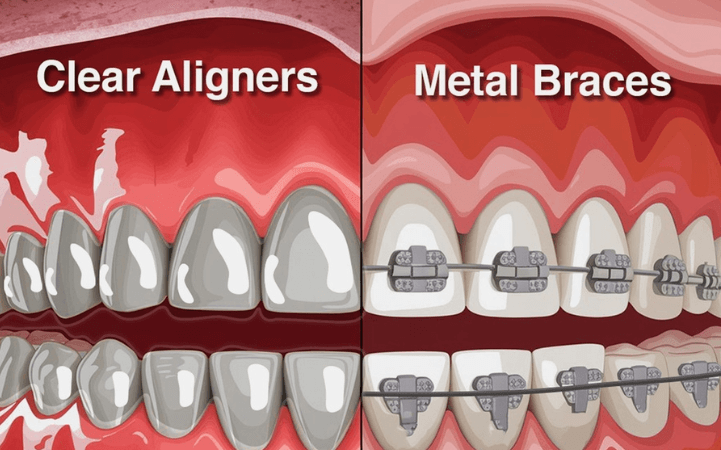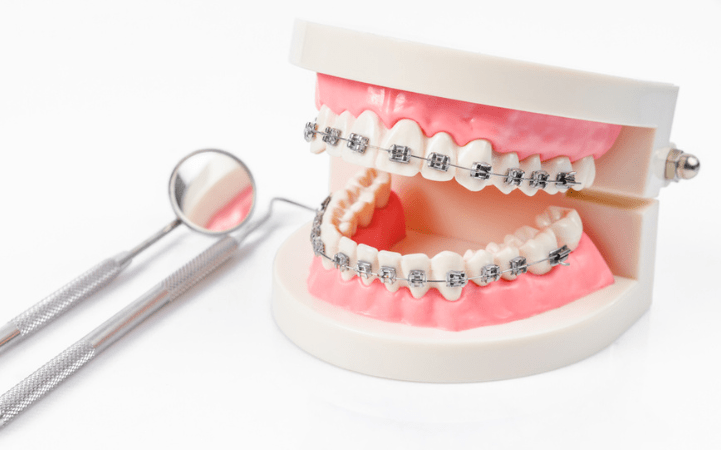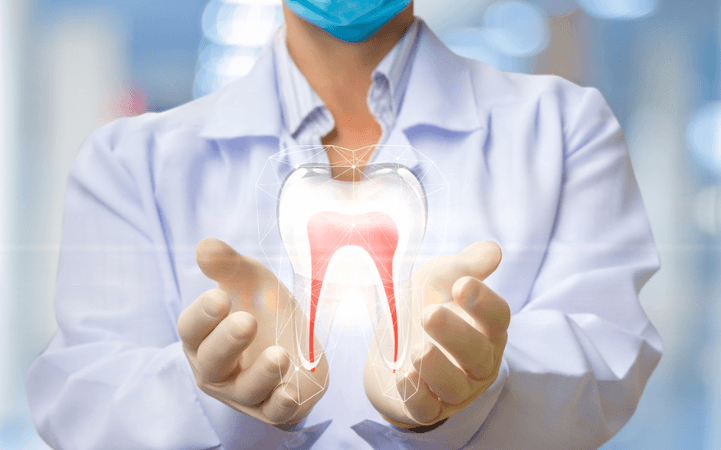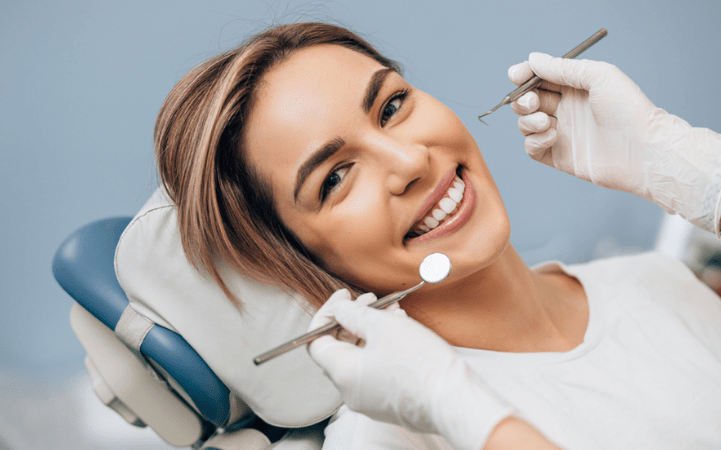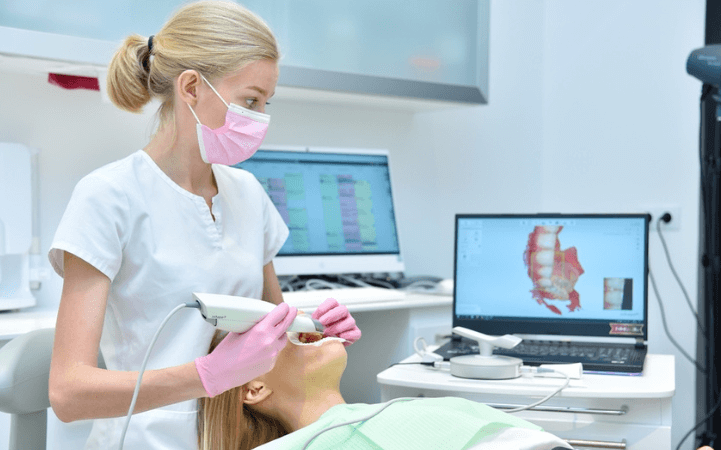How to Get Rid of Braces Pain
Perfect smiles and proper teeth alignment become achievable through the orthodontic device known as braces which delivers exceptional dental solutions to individuals. Yet most individuals looking for well-aligned teeth and a confident smile must tolerate some pain during their treatment procedures. Mouth soreness may also be experienced by those newly subjected to braces or those recently tightening their braces. However, the bright side is that braces pain can be alleviated as this pain lasts only a while, and there are numerous effective strategies to ease it. Continue reading this article as we explore various methods for managing braces pain, including how to get rid of braces pain without medication and how to get rid of braces soreness starting using natural home remedies. Understanding Braces Pain The gradual teeth movement performed by braces causes them to shift into their desired position. This process requires braces to apply pressure to your teeth and their supporting structures thus causing discomfort. Additionally, the brackets together with wires produce discomfort by irritating the sensitive soft tissues located inside the mouth. The main causes behind braces discomfort arise from four primary sources: Fortunately, the pain typically reduces as your mouth adjusts to the treatment. The following part examines proven methods to reduce discomfort during the braces treatment period. 12 Proven Ways to Get Rid of Braces Pain 1. Use an Ice Pack: An ice pack can be placed on the outside of your mouth as it serves two purposes: A towel wrapped in an ice pack can be used and applied to your cheek area for 10-15 minutes. 2. Drink Cold Water: The quickest natural remedy against braces pain occurs through cold water consumption. The coldness numbs the sore spots in one’s mouth, reduces swelling and gives almost instantaneous relief from pain. 3. Apply Orthodontic Wax: An orthodontist should provide orthodontic wax to use against braces when the brackets and wires become irritating and painful. To address those painful regions individuals can use orthodontic wax by rolling a small piece of it into a ball, then flattening it, and then placing it directly on those areas that cause pain and discomfort. 4. Eat Soft Foods: Patients getting braces must avoid hard delicious foods together with chewy and sticky items during the first days following braces application or adjustments. Smoothies, soup, yogurt, and mashed potatoes have to be fed to patients after braces are treated or brackets have been changed. The soreness during healing can be mitigated if patients choose foods that need minimal chewing. 5. Rinse Your Mouth with Warm Saltwater: Using a combination of warm water and salt is an excellent way that allows patients to treat the minor wounds caused by braces without difficulty. To create a salt water rinse, mix a teaspoon of salt in one glass of warm water then individuals are required to rinse their mouth with that solution for 30 seconds before discarding the mixture. The treatment alleviates gum sensitivity and stimulates the healing process. 6. Massage Your Gums: Stimulating blood circulation while reducing inflammation in your gums is extremely essential and can be done through gentle finger-based massages. An ice-cube-wrapped in a cloth makes an ideal gum massage therapy for a little extra soothing effect. 7. Maintain Good Oral Hygiene: Properly following oral hygiene tips is one of the main methods to prevent pain caused by plaque formation and gum inflammation. People must brush their teeth frequently along with flossing. Additionally, individuals can use water flossers as an additional method to boost oral cleaning results. 8. Avoid Acidic and Sugary Foods: Both acidic foods and sugary items in the diet result in increased discomfort and mouth sensitization. The individual should stay away from sugary snacks and sodas while avoiding citrus fruits as these food substances would cause additional pain and discomfort. 9: Use a Heating Pad: For some individuals, heat has an analgesic equivalent to that of ice. Patients can place a heating pad or warm washcloth on the outer part of their jaws to soothe the muscles and thereby relieve some pain. 10. Be Patient with the Process: The ache of braces is really annoying but remains for only a brief period of time. The mouth becomes more comfortable with the braces as it acclimates to the new appliance and hence over time results in reduced soreness. 11. Be Patient with the Process: The ache of braces is really annoying but remains for only a brief period of time. The mouth becomes more comfortable with the braces as it acclimates to the new appliance and hence over time results in reduced soreness. 12. Use an Oral Anesthetic: If the individual keeps on experiencing continuous pain they can consider using an over-the-counter anesthetic like Orajel. A tiny amount of the medicine should be placed on sore spots using a cotton swab to create immediate relief. 13. Distract Yourself: Distracting activities such as music listening along with movies or spending time with friends help individuals focus on something else than the discomfort they experience. The attention shifts when individuals keep them self occupied and it also helps reduce the awareness of discomfort. How to Get Rid of Braces Pain Without Medication For those individuals who want to avoid taking medication, they can use various natural approaches for managing braces pain effectively: The listed methods provide secure and effective relief against tooth discomfort and enable patients to stay comfortable throughout their affordable orthodontics treatment. How to Get Rid of Braces Soreness Most patients experience braces soreness, particularly during adjustment sessions. Here are some strategies for managing soreness: Conclusion The discomfort around braces exists only for a short time yet proper methods allow effective pain reduction. Orthodontic patients have both options such as natural remedies and orthodontic wax solutions to help reduce discomfort reliefs. Orthodontic patients must consult with their dentist and orthodontist about ongoing pain beyond a few days if their pain shows no signs of improvement. These suggestions support your braces journey to remain pleasant until you reach your
How to Get Rid of Braces Pain Read More »



